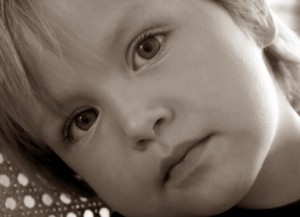 Depression and anxiety can spread through families like contagious diseases, and children are the most vulnerable to contamination.
Depression and anxiety can spread through families like contagious diseases, and children are the most vulnerable to contamination.
Sure, genetic predisposition plays a part too, but a lot of it has to do with what we are exposed to as children. That means you can influence how much your children are affected.
How Depression is Spread
Partners of people with depression often complain of feeling as if they are living near a black hole which is draining their life force. They gradually lose energy and enthusiasm, their lives become restricted, and their home becomes a dark and dreary place.
Children of depressed parents can be even more affected. On top of this ‘black hole effect’, children learn how to interact with the world largely by observing other people, especially their parents. So if a child witnesses a parent consistently looking glum, or repeatedly talking negatively about problems, they are likely to copy that behaviour. Our behaviour affects the way we feel, so children of depressed people are at risk of internalising their parents’ view that the world is a negative place that holds little joy.
Depressed people have a tendency to withdraw from others, so they sometimes find it difficult to listen to their children and to respond consistently and positively to their emotional and psychological needs. This can lead to the children feeling confused and unloved, and can in turn impact on their self esteem and happiness.
All of this is a recipe for… you got it… another generation of depression.
How Anxiety is Spread
Anxiety can also be passed on through families. Children are programmed to learn what to be afraid of from parents in order to survive. A highly anxious parent typically sees the world as a scary place that cannot be trusted. They may well pass on their fears to their children as warnings, and become over-protective in an attempt to keep them safe. This can lead to the children internalising their parent’s fears and becoming overly anxious.
Also, remember that children mimic their parents, so a parent who is tense and easily stressed, is likely to inadvertently teach their children to behave in the same way.
How to Break the Cycle
You can take steps to protect your children from the negative effects of your anxiety and depression. Here are a few simple ways to start…..
- Be aware of what you teach your children about the world. Do you paint a scary or dark picture? Try to relax, lighten up, and look on the bright side.
- Think about how your children witness you interacting with others and them? If you want your children to be calm and positive, make sure you are a calm and positive role model.
- Make an effort to connect with your children in a consistent way. Get interested in their thoughts and feelings. Listen well, and try to respond in compassionate and positive ways to their problems.
- Be affectionate and warm, and praise your children liberally.
- Make the effort to enjoy fun interactions with your children. Family games can be great bonders, and laughter is a wonderful antidote for depression and anxiety.
- Exercise is also a natural antidote; so, even if it’s the last thing you feel like doing, try to do something regularly as a family that involves physical activity. Fun outdoor activities improve mood, and getting everyone out in the world can help you all combat fears.
Get Help ASAP
It is important that you take steps to deal with your own depression or anxiety. Focusing on helping your children should have the added bonus of helping you, but you might need to do a bit more to move into a consistently healthy state. There is plenty of useful information out there in books and on the internet, but if depression or anxiety is continuing to limit your life, please make sure you get some good professional help without delay, for your children’s sake.
